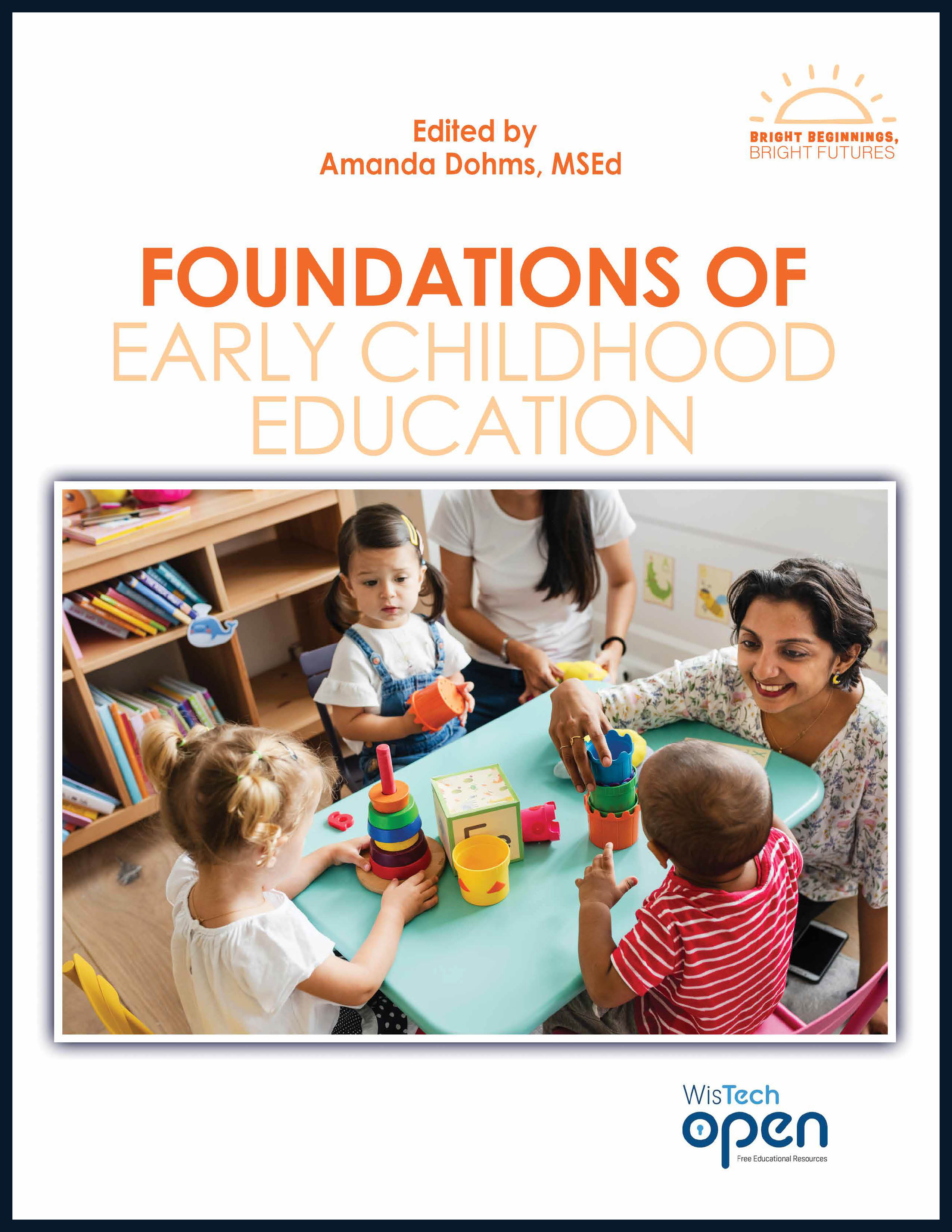Published
Estimated Publish Date
June 2025
Discover the principles, practices, and strategies for teaching young children from birth to 8 years.
.svg)
.svg)
Print Textbook: September 2025
Audiobook: December 2025
Next Edition: 2030
815 students | 1,283 high school students | $401,767 student savings
Course Competency 1: Explore the concepts of diversity, equity, and inclusion in the early childhood profession
- Define anti-bias education and other relevant terms
- Follow the guidelines of “Anti-Bias Education for Young Children and Ourselves” or a similar resource
Course Competency 2: Investigate the history and current trends of early childhood education
- Describe the origins of early childhood education
- Describe current trends that impact early childhood education
- Describe legislative acts that affect early childhood education
Course Competency 3: Summarize types of early childhood education settings
- Differentiate between the variety of early childhood education settings
- Differentiate among the unique programming for each stage of development (infant, toddler, preschool, school age)
Course Competency 4: Explore regulatory requirements for early childhood education programs in Wisconsin
- Explore group childcare regulatory requirements
- Explore family childcare (licensing, certification, provisional) regulatory requirements
Course Competency 5: Identify quality indicators in early childhood education programs
- Understand and articulate the principles of developmentally appropriate practices (DAP)
- Explain the accreditation process and its importance in maintaining high standards of quality in early childhood programs
- Explain how YoungStar criteria are used to assess and improve the quality of childcare programs
- Understand the role of environmental rating scales (ERS) in guiding improvements to early childhood education environments
Course Competency 6: Describe the roles and responsibilities of the various job positions in early childhood education
- Describe professional behaviors of early educators
- Describe ethical behaviors of early educators using the NAEYC Code of Ethical Conduct as a guide
- Identify the importance of advocacy for the ECE professional
- Describe the Wisconsin Core Competencies For Professionals Working with Young Children & Their Families
Course Competency 7: Explore early childhood curriculum models
- Describe the definition and purpose of play-based curriculum in early childhood education
- Identify play-based curriculum models
- Identify the philosophies, theorists, and the educator’s role in research-based curriculum models
Course Competency 8: Examine the critical role of play as it relates to developmentally appropriate practice
- Describe the importance of play
- Identify the types and stages of play
- Identify the educator’s role in preparing the environment and facilitating play
- Describe how hands-on, play-based experiences promote child development/learning in all domains
- Identify the educator’s role in using observational skills to support play and learning
You are free to:
– Share — copy and redistribute the material in any medium or format
– Adapt — remix, transform, and build upon the material for any purpose, even commercially
Under the following terms:
– Attribution — You must give appropriate credit to WisTech Open, provide a link to the license, and indicate if changes were made. You may do so in any reasonable manner, but not in any way that suggests WisTech Open endorses you or your use.
License: https://creativecommons.org/licenses/by/4.0/

